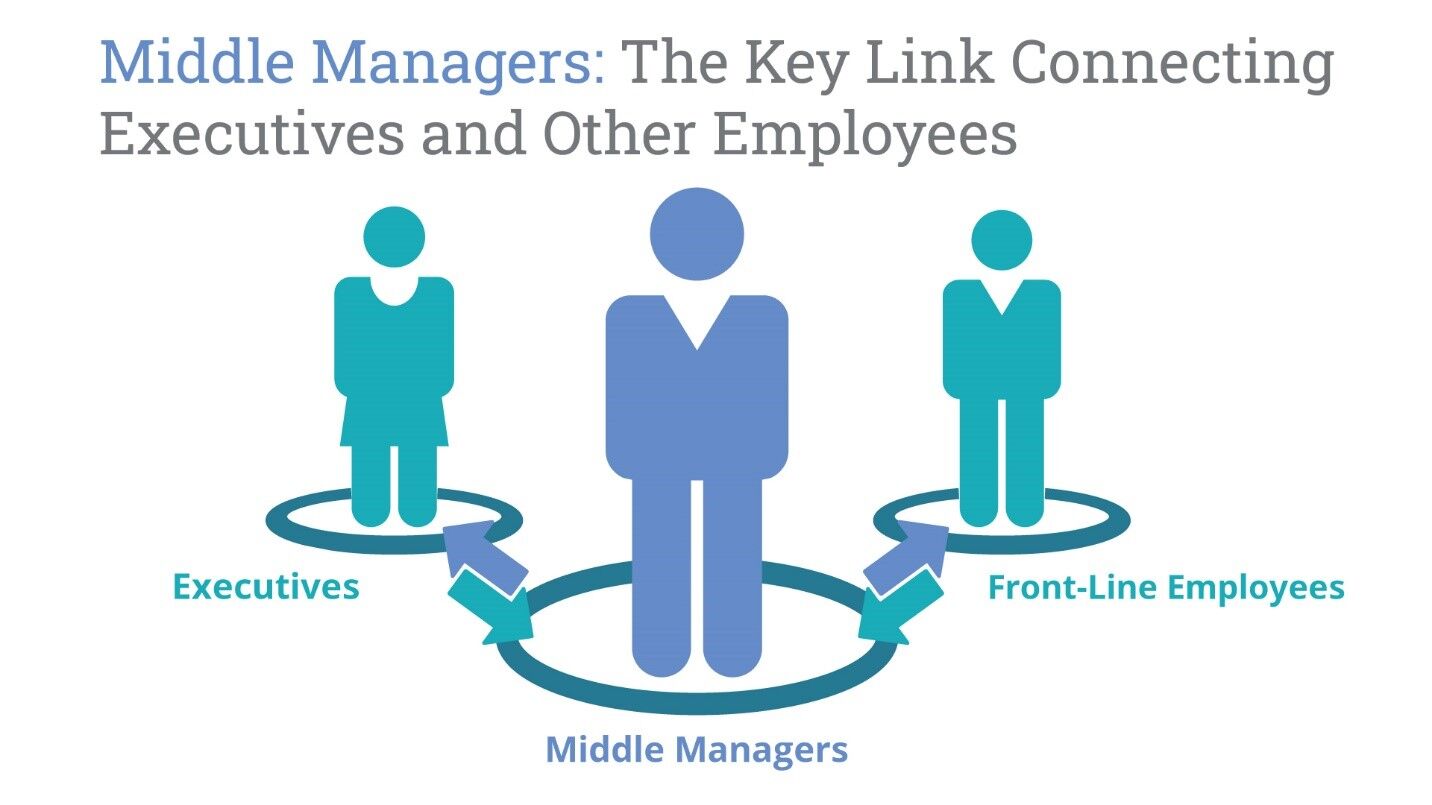The Underrated Role Of Middle Managers: Driving Company Performance And Employee Satisfaction

Table of Contents
Middle Managers as the Bridge Between Leadership and Employees
Middle managers are the crucial link connecting high-level strategic goals with the day-to-day operations of teams. They translate complex directives from senior leadership into actionable tasks, ensuring everyone understands the "why" behind their work. Effective middle managers excel at bidirectional communication, relaying information smoothly both upward (to senior management) and downward (to their teams). This requires a deep understanding of both management expectations and employee needs, fostering a culture of transparency and trust.
- Clear communication strategies: Effective middle managers utilize various communication channels (e.g., regular team meetings, one-on-one check-ins, email updates) to keep their teams informed and engaged. They also actively solicit feedback and address concerns promptly.
- Successful communication tools: Tools like project management software, internal communication platforms, and regular team huddles can significantly improve communication flow and transparency.
- Conflict resolution and feedback: Skilled middle managers address conflict constructively, using active listening and mediation techniques. They provide regular, constructive feedback, both positive reinforcement and areas for improvement, fostering a culture of continuous learning.
Driving Performance Through Effective Middle Management
Middle managers play a pivotal role in driving team performance. This involves setting clear expectations, providing regular feedback, coaching team members, and implementing effective performance management strategies. Goal setting is crucial; middle managers should work with their teams to establish SMART (Specific, Measurable, Achievable, Relevant, Time-bound) goals and track progress regularly. Furthermore, they empower team members by delegating tasks effectively, fostering a sense of ownership and accountability.
- SMART goal setting: Using the SMART framework ensures that goals are clearly defined and easily tracked, facilitating progress monitoring and adjustments.
- Constructive feedback and performance reviews: Regular feedback sessions, including formal performance reviews, offer opportunities to recognize achievements, address performance gaps, and provide guidance for improvement. Providing specific examples and focusing on behavioral changes is key.
- Delegation and teamwork: Effective delegation empowers team members, fostering skill development and increasing productivity. This requires trust and clear communication of expectations and responsibilities.
Fostering Employee Satisfaction and Retention Through Middle Management
Employee satisfaction and retention are significantly influenced by middle managers. Their leadership style, ability to create a positive work environment, and commitment to employee well-being directly impact team morale and job satisfaction. Recognizing and rewarding contributions, promoting work-life balance initiatives, and fostering strong team relationships are critical components of successful middle management.
- Building strong teams: Middle managers can cultivate a collaborative environment by promoting open communication, mutual respect, and a sense of shared purpose. Team-building activities and social events can further strengthen these bonds.
- Recognition and rewards: Acknowledging and rewarding employee contributions—both big and small—demonstrates appreciation and boosts morale. This can be through verbal praise, public acknowledgment, or tangible rewards.
- Work-life balance: Middle managers can support work-life balance by promoting flexible work arrangements, encouraging the use of vacation time, and advocating for employee well-being initiatives.
Developing and Supporting Middle Managers for Optimal Performance
Investing in middle management training and development is essential for organizational success. Leadership development programs, mentoring opportunities, and skill-building initiatives equip middle managers with the tools and resources they need to thrive. Providing them with access to performance management software and other support resources further enhances their effectiveness.
- Leadership training: Programs focused on communication, conflict resolution, performance management, and emotional intelligence are crucial for developing strong leadership skills.
- Mentorship programs: Pairing experienced middle managers with mentors provides guidance, support, and valuable insights, fostering professional growth and development.
- Resources and tools: Providing access to tools such as performance management software, training resources, and internal communication platforms enhances their capacity to effectively manage their teams.
The Vital Role of Middle Managers in Company Success
In conclusion, middle managers play a vital, often underestimated, role in achieving both company success and high employee satisfaction. Their ability to bridge the gap between leadership and employees, drive performance, and foster a positive work environment is crucial for organizational health. Investing in effective middle management through targeted training, development, and ongoing support is not just beneficial—it's essential for empowering middle managers, improving company performance, and creating a highly engaged workforce. Focus on developing your middle managers and you'll see the significant impact on your overall organizational success.

Featured Posts
-
 S Jv Sea 101 Your Guide To The Sounders Vs Earthquakes Match
May 16, 2025
S Jv Sea 101 Your Guide To The Sounders Vs Earthquakes Match
May 16, 2025 -
 La Ligas Illegal Blocking Cloudflare Fights Back In Court
May 16, 2025
La Ligas Illegal Blocking Cloudflare Fights Back In Court
May 16, 2025 -
 Perlindungan Warga Pesisir Urgensi Pembangunan Giant Sea Wall Menurut Dpr
May 16, 2025
Perlindungan Warga Pesisir Urgensi Pembangunan Giant Sea Wall Menurut Dpr
May 16, 2025 -
 Foot Lockers New Global Headquarters A St Petersburg Landing
May 16, 2025
Foot Lockers New Global Headquarters A St Petersburg Landing
May 16, 2025 -
 Earthquakes Cant Solve Zach Steffens Problems Loss To Rapids Highlights Goalkeeping Woes
May 16, 2025
Earthquakes Cant Solve Zach Steffens Problems Loss To Rapids Highlights Goalkeeping Woes
May 16, 2025
